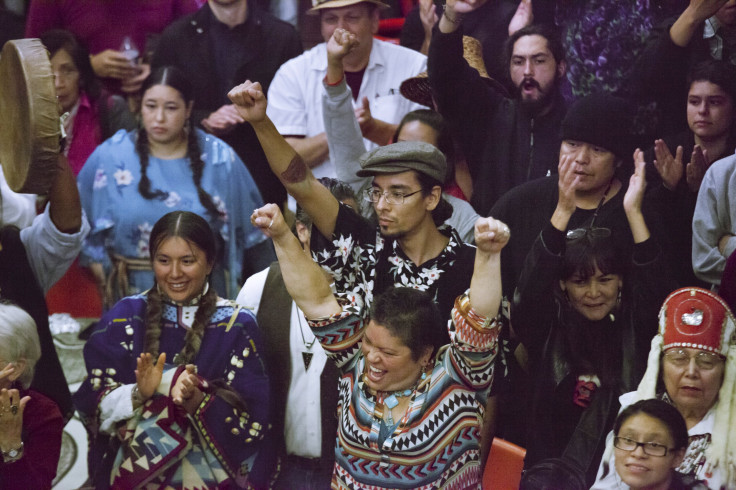What Is Indigenous Peoples' Day? More Americans Choosing To Not Celebrate Columbus

Indigenous Peoples' Day, also known as Native American Day, is a holiday that celebrates indigenous people of North America.
It first began as a counter-celebration to the Columbus Day, which celebrates the anniversary of Christopher Columbus's arrival in the Americas on Oct. 12, 1492. Activists have long argued the holidays, statues and memorials dedicated to Columbus cleanse his actions, which include the enslavement of Native Americans. Some also argue he was given the credit for discovering a place where people already lived.
Speaking about the same, Leo Killsback, a professor of American Indian Studies at Arizona State University, said, “Columbus Day is not just a holiday, it represents the violent history of colonization in the Western hemisphere,” History.com reported.
“Indigenous People’s Day represents a much more honest and fair representation of American values,” he said.
The Indigenous Peoples’ Day became a part of the movement that recognized the atrocities of Columbus while stressing and celebrating the contributions made by the Natives. Since 1992, several cities and universities have been commemorating the day. While in some cities, the occasion falls on Columbus Day — the second Monday in October — others have replaced the holiday entirely.
In 1992, Native American Groups convinced the city council of Berkeley, California, to declare Oct. 12 as a "Day of Solidarity with Indigenous People", and 1992 the "Year of Indigenous People". The city renamed Columbus Day as "Indigenous Peoples' Day" in the beginning of 1992.
Berkeley's move of replacing Columbus Day with Indigenous Peoples' Day in 1992, was followed by multiple other localities including Santa Cruz, California; Dane County, Wisconsin; Minneapolis; Seattle; Missoula, Montana; Cambridge, Massachusetts; Denver; Phoenix; Iowa City, Iowa; Nashville, Tennessee; Ithaca, New York, among others.
States like Alaska, Hawaii, Oregon, South Dakota, and Vermont do not recognize Columbus Day at all; however, Hawaii and South Dakota mark the day with an alternative holiday. In 2016, Vermont started observing Indigenous Peoples' Day instead of Columbus Day due to the changes made by Gov. Peter Shumlin; however, it only applied to that year as the order is supposed to be issued by the sitting governor on a yearly basis or changed completely by the legislature for permanency.
Two additional states, Iowa and Nevada, do not celebrate it as an official holiday, but the respective governors are authorized and requested by statute to proclaim the day each year.
The city of Austin was the latest in the long list of cities to recognize Indigenous Peoples’ Day. The resolution that was passed stated that it wants to teach the Native Americans history in schools.
#ATXCouncil approves resolution recognizing the second Monday of every October as Indigenous Peoples’ Day in the City of Austin.
— City of Austin (@austintexasgov) October 5, 2017
Los Angeles, in August, became the biggest city to stop recognizing the Italian explorer and instead decided to identify victims of colonialism.
Cliff Matias, the cultural director of the Redhawk Native American Arts Council, which is hosting a “Re-Thinking Columbus Day” event through Monday in New York, defended the event and said it was not being held to take anything away from the Italian Americans. “The conversation is Columbus. If they’re going to celebrate Columbus, we need to celebrate the fact that we survived Columbus,” he said, the Washington Post reported.
© Copyright IBTimes 2024. All rights reserved.






















